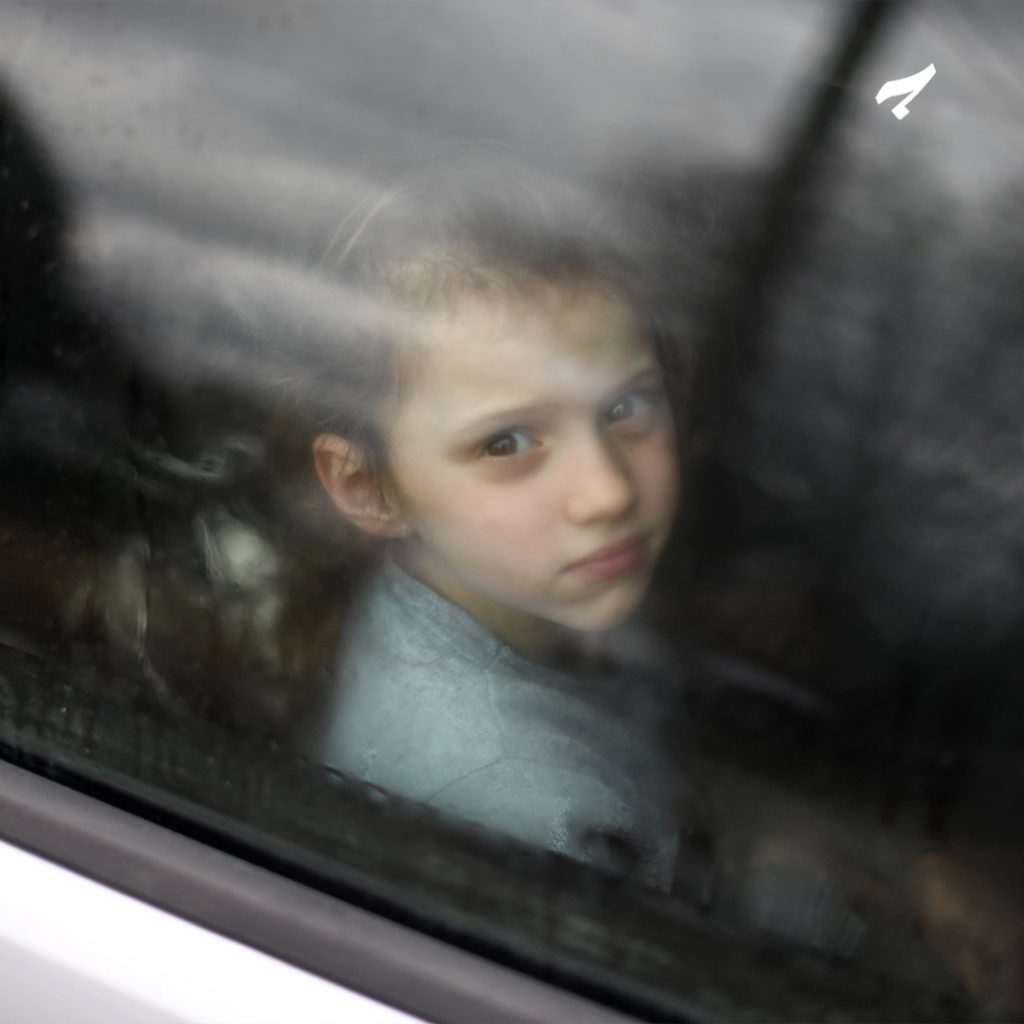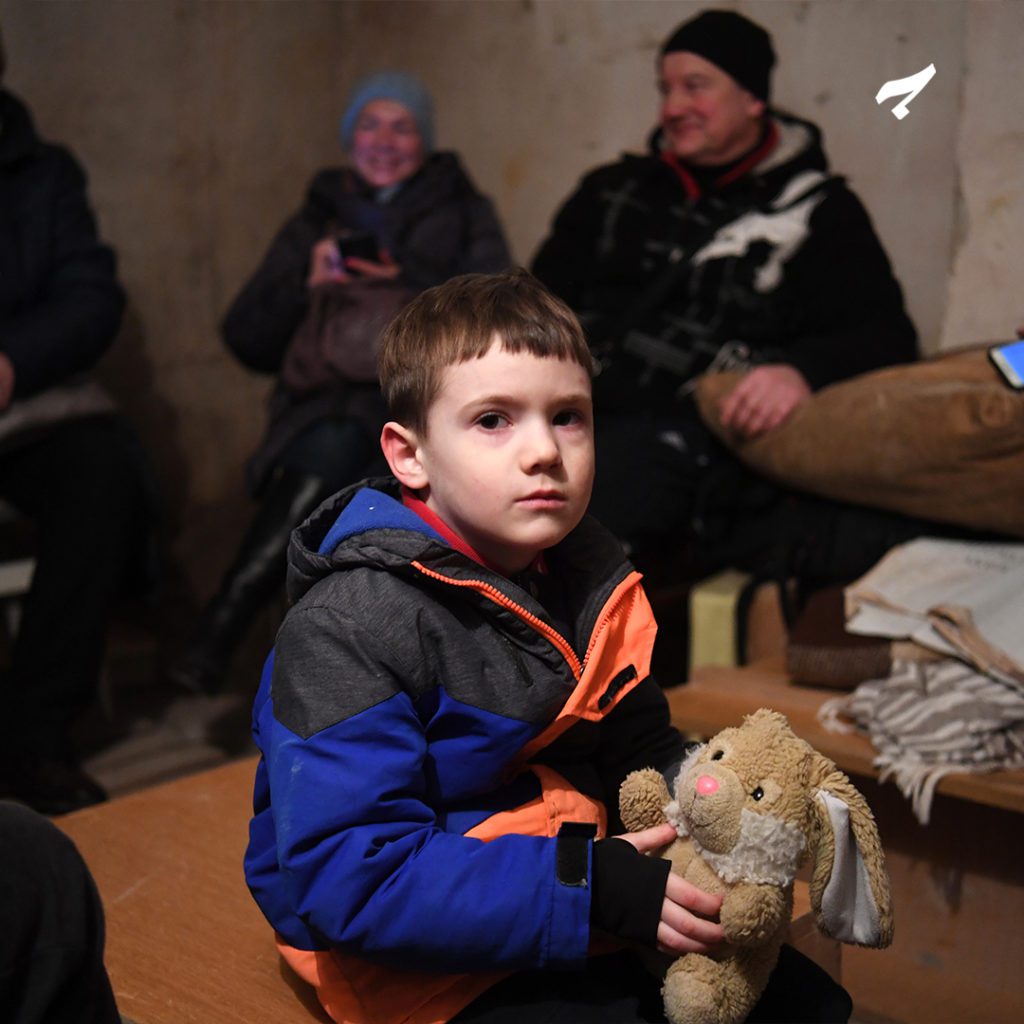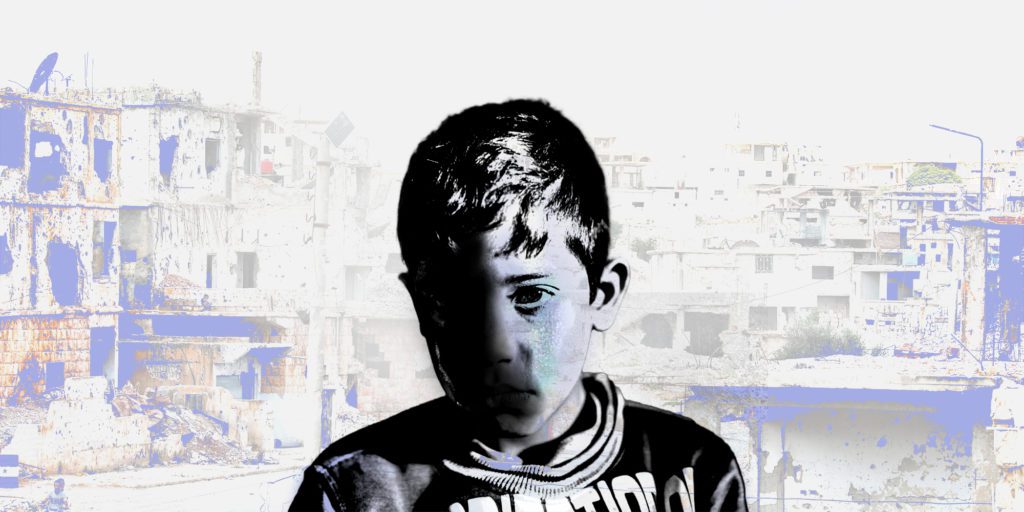This article was published in German magazine Der Spiegel .
She gets closer and closer, her features on the lens, right in front of everyone. I have seen those eyes before, the same sharp look, the sunken blackness just under the eyebrows in the hollows of her face, the same gray dust on the cheeks, the dark red receding along the side.
In the distance there are silhouettes of destroyed buildings and a street, on which stray steps were fleeing from imminent death.

During those first moments when the image hit me, something strange happened. The screen in front of me was divided into sections, each of which had the same face or one similar to it, the same background or something similar on it. On each, history and place were written, past and present, and names of countries I know, some of which witnessed a similar war. My body froze and I tried to close my eyes, but could not. For a long time I stared at the pictures, which came back to haunt me.
The Russian invasion of Ukraine revived my Syrian memories, which I’d always been proud of repressing successfully.
Ukraine 2022. Closeup on a story building. A man standing, staring, his eyes shifting, from one floor to the next. There, on the third floor, the building is empty. There are no windows, no doors, no color. Inside is outside.
On the balcony he had been drinking his cup of coffee only two days ago, before Russian aircraft bombed him and all other inhabitants in the building. He turned his head down, walking away from everything he had.
On February 24, 2022, the people of Ukraine woke up to the sound of sirens. The war broke out as Russia launched a military operation and triggered the biggest security crisis in Europe since the Cold War.
To us, children of countries affected by war, it awakened our darkest memories. The act of awakening has become the opposite of what it actually is. It is as if we had fallen asleep into a nightmare and never woke up.
Aleppo 2015. An entire neighborhood completely destroyed, devoid of any human presence. At that time, it was me standing in front of one of the buildings, with no door preventing me from entering the homes of those who used to live there before the bombing by the Syrian regime and its Russian and Iranian allies started. All the homes were turned inside out. Bedrooms, living rooms, bathrooms, water and electricity installations, clothes, children’s toys, books, papers – you could see everything without stepping inside.
The Russian Air Force launched its first air strikes on Syrian territory on September 30, 2015, after Syrian President Bashar al-Assad had requested Moscow for military support. The intervention resulted in the killing of thousands of civilians in various parts of Syria.
It seems Putin, with his recent invasion of nearby Ukraine and his intervention in distant Syria, is seriously trying to restore his former Soviet realm.
The Ukrainian case is different from the Syrian one, yet similar in terms of the repercussions, such as death, destruction, displacement and the spread of fake news. Although the opponent in both cases is the same, the main enemy in Syria was and remains the Syrian regime, which asked the Russian government to fight against its people and engage in an unfair battle against the armed factions, which received only limited support from Western and other countries.
As for Ukraine, its people and government were subjected to a direct Russian occupation by a Russian decision only, and to serve the Russian regime only. As for Ukraine, the Russian army is not faced with several separate factions, but rather one organized army supported by the West.
Read Also:
In both cases, war is war, and the victims are people who did not choose war and violence, yet lost their home and everything they owned, and were forced to seek refuge to escape death and abuse.
It is not easy for us to keep up with the news on the Russian war on Ukraine, as we come from a war that is still burning our country. Even if you try to avoid following the news, scrutinizing every photo and video, you will still find yourself drowning in the scenes unconsciously or unintentionally. You see their faces, and the details of the events reflecting on them, and you navigate their journey, comparing it with your own.
Beneath the soiled woolen blankets, you see bodies bound together, surrounded by scattered sacks and bags. Look from a wider angle and you can see, on a large area close to the borders of Belarus and Poland, human bodies that in dispersed groups form human masses trying to find some warmth in the severe cold, after most countries prevented them from entering their lands, or even just passing through, to Germany, which has received the largest number of refugees in Europe, or elsewhere.
Stacked on top of each other, exhausted, coming from countries in war, crossing the path of death , they found themselves facing another type of injustice, violence, beatings and humiliation from border guards, amidst overall international inaction.
We are talking about thousands of Arab, African and Asian refugees stuck in the border strip between Russia and Poland for months. They only carry with them what they were able to carry and a little food brought to them by humanitarian organizations. Almost in the same place, in the same border strip, there are now tens of thousands of displaced Ukrainians fleeing Russian oppression and war, carrying with them what they could carry with them.
The irony is that this time the border guards opened the gates, while a large number of humanitarian organizations and local authorities are providing aid and assistance. Poland welcomed them into its territory. Meanwhile, civilian convoys loaded with aid are heading to the Ukrainian border to help refugees.
A united fate brings together refugees, regardless of where they are from. They are united in wandering, escaping death, the desire to survive and the will to live …
However, in response to this unity, most Western countries revealed a crude double standard in dealing with the matter, as they distinguished between refugees according to identity and race instead of treating all refugees freezing in the cold the same way.


Away from this duplicity, from the apparent racism of some western countries and media, which distinguish between Syrian, Iraqi and Afghan refugees on the one and Ukrainian refugees on the other hand, it is certain that in war only refugees know the meaning of asylum, and the meaning of escaping from death, and the meaning of loss, the meaning of diaspora.
In these difficult times we are living, there is only room for solidarity with the oppressed and the refugees, and for saving lives either inside or stuck at some border.
Berlin, a city that embraces diversity, recently saw streets teeming with old residents, refugees and immigrants of all kinds of nationalities, demonstrating in solidarity with the Ukrainian people against Russian occupation. They stand together against war, regardless of any other calculations.
As a Palestinian-Syrian refugee who was welcomed in Berlin seven years ago, I sit in my heated home, following what is happening in Ukraine, Syria, Yemen and Iraq …
Since the beginning of the Russian invasion I have been waging a war with the past and present that surround me. All I see every time I close my eyes, or open them, are quick short scenes of destroyed cities, shocked faces, the enemy bragging about his military machine, refugees freezing on borders, corpses, and body parts scattered in the street. It is as if my body returned to that single cell in the Air Force Intelligence Damascus branch. It is as if there is no way to recover from the repercussions of war, no matter how much time passes.
It seems, wherever I seek refuge, peace is never near.
Read Also:






